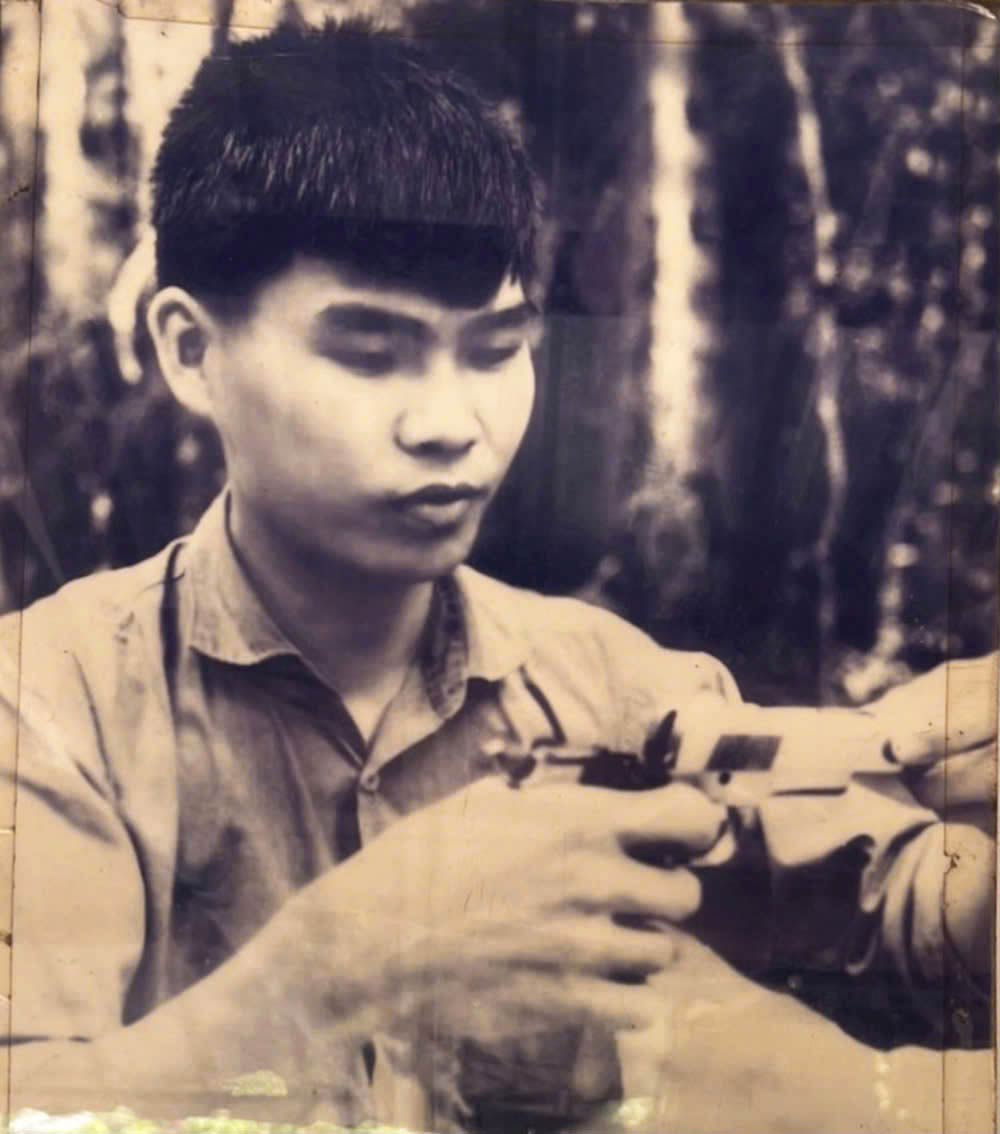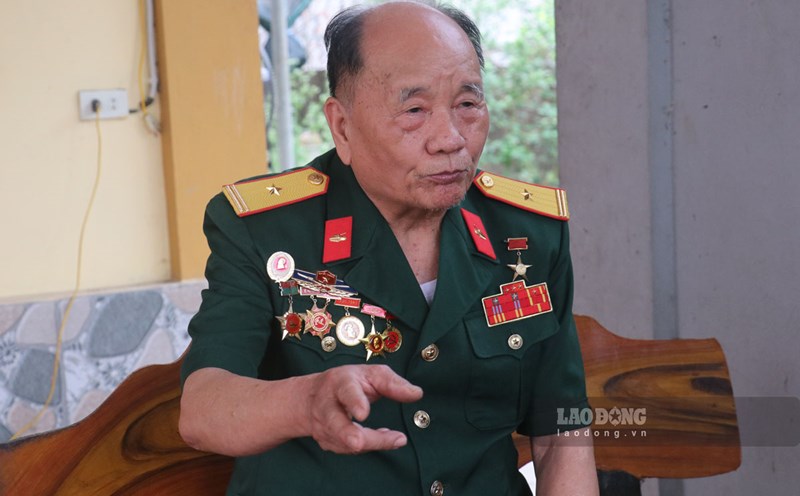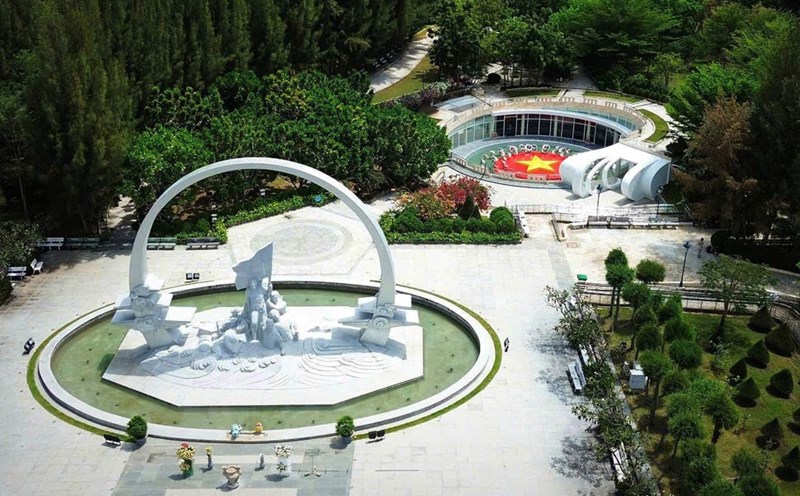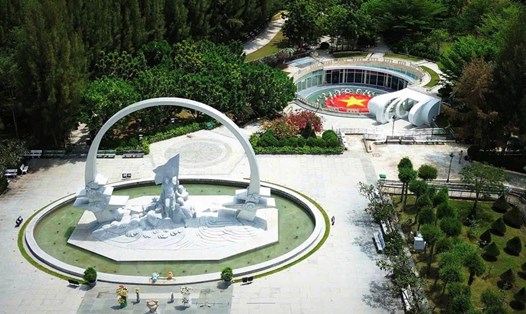The child of "steel land" and the memories of the fire
In a simple small house, hidden in a cool green garden in Xom Bung Hamlet, Nhuan Duc Commune, Cu Chi District, Ho Chi Minh City, Hero of the Armed Forces To Van Duc welcomed us with a gentle smile. He told us to keep calling him "Mr. Duc" for a close acquaintance, true to the style of the Southern people, his eyes lit up with pride when recalling the fierce war years.
Born in 1942, Mr. Duc is the youngest child in a family of ten siblings in Nhuan Duc commune. Witnessing the powerful bullets that carved his homeland, the young man To Van Duc put his life in the fields, volunteered to join the local tourist force, determined to stick to the land and protect the village.
"At that time, the youth union movement had just emerged, guns and bullets were still lacking, weapons were very rudimentary" - Mr. Duc recalled.
He said that he had a degree in auto repair before, so he was given a job by his superiors at the arms factory.It is called a forging workshop, but in fact it is just a small blacksmith.Initially, Mr. Duc made sky horse guns (a type of gun commonly used by local tourists), fired from close range, only reaching 40-50 m.But tourists had to fire from a distance, so he studied the rifle.
"I don't have bullets to produce, I take advantage of bullets collected from the enemy, making guns to fire. Every month, I can make a rifle, thanks to that, I fight more effectively on the proxy, and the people also enthusiastically participate in the movement of heroes to kill the enemy" - he said.
Realizing that many bombs were dropped but many of them did not explode, Mr. Duc came up with the bold idea of collecting, improving and reusing them. He and his teammates carefully removed each unexploded bomb, took explosives inside to make anti-tank mines and other weapons.
With his experience in repairing machinery, he has created many effective detonation methods, helping the Cu Chi regroupes destroy enemy tanks right on the battlefield. Thanks to these feats, he was affectionately called "Mine King" by his comrades and people - the person who turned enemy weapons into a strength to protect his homeland.

Determined to fight the enemy
During the years of revolutionary activities, Mr. Duc and his teammates had to be self-reliant in the production of weapons. Rice is supported by the surrounding people, while steel is sought after by themselves, if not, they go to buy.
After sinking the enemy's warship on the Saigon River with a 50 kg destroy ball dropped by the enemy, which had been improved, Mr. Duc started making mines to fight back with the enemy tanks. Initially, Mr. Duc borrowed two blasting bullets produced by the former Soviet Union from a military officer named Tam Thanh to learn and then used them to test the tank.
Not passing the training course, not having any experience in bombing the US, but still having to take risks and sacrifice to exchange for the situation of the war. Thinking is doing, Mr. Duc told everyone to stay away, keeping a safe distance. He went down alone to find a way to remove the bomb.
I think the forces outside fight with small bullets and die, I here below with this bomb and explode and die, I alone are enough, there is no need to lose more vitality in this battle. If I sacrifice, my comrades will destroy the enemy in my place. If I successfully resolve the issue and everything is safe, my people can feel secure at home to do business" - he said.
The fierce fighting was like that, but there were also moments close to death that he never forgot. Once against the low forest, the enemy helicopter was closer to the ground, nothing to fight back, he removed 10 grenades to throw. At the 10th result, suddenly exploded, his hand was seriously injured. "Fortunately, the crew only, but my left explosion lost my life. I was seriously injured, gore full of people, my younger brother had to take me to the emergency medical station. More than a month, I recovered" - he said.

The spirit of fighting
During the years of Mr. Duc's war, Mrs. To Thi Hang, his biological sister, always followed, encouraged, and supported her younger brother. In the locality, she also actively participated in digging underpasses with her women.
Ms. Hang recalled: "At that time, Cu Chi was very fierce. My family's husband has been fighting since he was 15 years old. At that time, people participated in the revolution, the small worked, the big worked. Every time I heard the enemy coming in, I was very scared, but still encouraged my younger brother to fight and protect my homeland".
Referring to the arduous war years, Ms. Hang said that she was always ready to die. "I didn't shoot him, he also shot me, so I was always determined to fight" - Ms. Hang said.
The honest narration of Mr. Duc and Mrs. Hang clearly depicts the fighting spirit of the Cu Chi people during the years of resistance. On each road, each plot of rice fields of Cu Chi has the footsteps of the silent heroes.
"My whole life has had the Party guide me, the army train me, and the people nurture me. I believe the younger generation will continue the tradition of their ancestors to build Ho Chi Minh City to truly be a city of love" - Hero of the Armed Forces To Van Duc confided.











